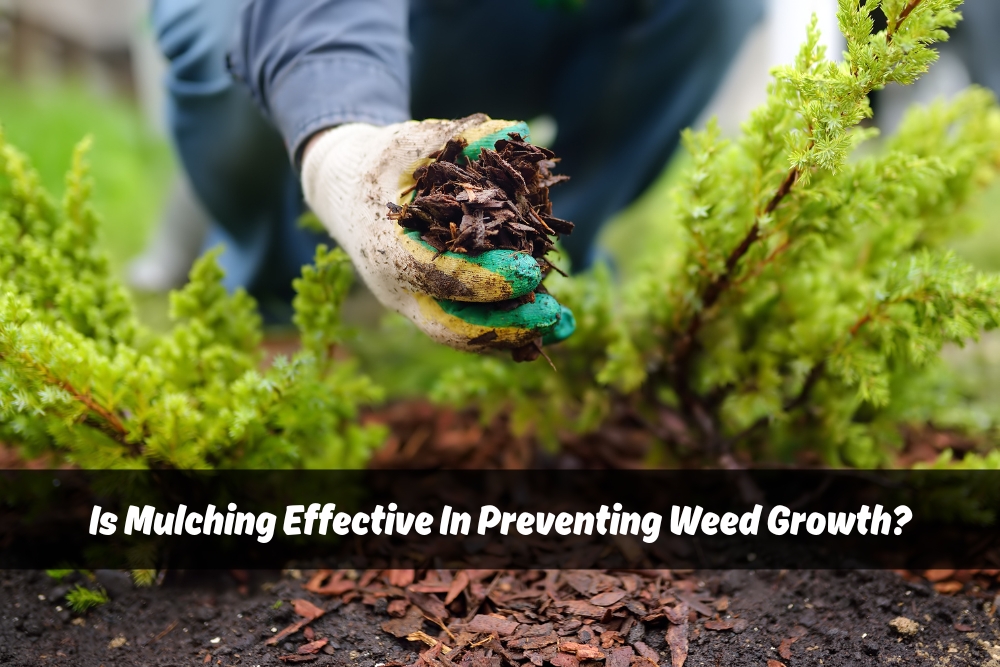Well, it must be admitted that weed control is still one of the pressing issues faced by thousands of gardeners in Sydney. But worry not, those of you who consider yourselves skilled gardeners! There’s a simple weapon in your arsenal that can seriously tilt the fight in your favour: This guide will reveal whether mulch is effective against weeds and how to prevent them, creating a wonderful environment for your plants.
Does mulch actually prevent weeds?
Absolutely! This is probably where mulch comes in handy; it forms the shield against the ever-irritating weeds. Here’s how it works its magic:
- Light blocker: Mulch acts as a natural light blocker, preventing weed seeds from germinating. A good layer keeps sunlight from reaching the soil, hindering their first attempt at growth.
- Physical barrier: Mulch creates a physical roadblock, making it tough for sneaky weed seedlings to push through and reach the surface.
- Moisture master: Mulch acts as a bouncer for your plants, keeping the good stuff in and those pesky weeds out! It’s like a built-in watering can, holding onto moisture that your plants love. Most weeds prefer drier spots anyway, so they don’t stand a chance against your happy, established plants in the battle for water.
- Temperature tamer: Organic mulch also has the effect of maintaining temperature in the various seasons for instance, while the soil will be comparatively cooler during the hot summer, it will only be slightly warmer during the cold winter season. This can help to establish different environmental conditions that favour less of some weed species.
What kind of mulch is best for weed prevention?
One fact remains clear, not all those mulch’s do the job of controlling weeds effectively. In fact, mulch comes in different types and has different colours and forms too. Here’s the dirt on some popular choices:

- Organic mulch: Bark, wood chips, straw, and even leaves. The best thing is that these materials degrade as time goes by and enhance the quality of the soil. Downside? Remember, it might be necessary to put more mulch after some time in order to suppress the weeds.
- Inorganic mulch: Think pebbles, gravel, and those fabric sheets. This kind of mulch lasts ages and barely needs any upkeep. But, it doesn’t help the soil as much as the organic kind.
The best mulch for your weed-whacking crusade depends on your needs and what you fancy. You can learn more about the benefits of mulching to prevent weeds by understanding how different mulch materials impact weed seed germination and growth.
How to apply mulch for maximum weed control
- Clear the stage: The following step to reaching your mulch triumph is to remove weeds from the gardening area. You do not wish to provide those invaders with a warm home under the fresh mulch cover you are applying on the ground.
- Define the borders: It is also important to install an edging material for the mulch to ensure you make a neat border with materials such as plastic, bricks, or even used bottles.
- The mulch mountain: Finally, the part that most people actually find enjoyable spreading the mulch around. However, ensure it is thick enough to block light as well as form a barrier to weeds without covering your plants too much thus hindering air circulation, try keeping the spacing of labels between 2-4 inches.
While applying mulch offers a powerful shield against weeds, properly securing it can prevent mulch from floating or washing away in heavy rain. This ensures long-lasting weed suppression and keeps your garden looking its best year-round.
Mulch maintenance: Keeping your weeds strong
Technically, the mulch is not a one-time application where you just create a barrier and leave it at that. Here are a few tips to keep your mulch layer in tip-top shape:

- Top up tally: Ensure that you monitor the depth of the mulch that you use and endeavour to add more of it whenever necessary.
- The moisture patrol: Even after rain or watering, check your mulch for pooling water. Drowning plants can be a double threat: too much mulch acting like a lid, or compacted soil beneath that suffocates the roots.
- Fungal foes: In some occasions, mulching reduces or in fact creates a bed for fungi to thrive in by forming a layer of mulch. There is no exact science on how to control the mould or mildew, but if you see any of it you simply need to remove the mulch and let the soil dry for some time.
Mulches are essential for gardening, purposes since it has numerous benefits that are not restrictive to the aesthetic value of the garden alone. In addition, they are mainly used for moisture retention however they also have significant importance in the nutrient supply needed for the garden ecosystems.
So, is mulch your weed-whacking champion?
Mulch is like a superpower for your garden, but it’s not like kryptonite for weeds. It definitely throws a wrench in their plans by blocking light, acting like a weed bouncer, and keeping the soil nice and moist (not ideal for thirsty weeds). But those pesky things can still be sneaky and try to crash the party. That’s why mulch is best when you team it up with other weed-fighting tactics. Remember, a weed-free garden takes work, but with mulch as your partner and a few other moves in your arsenal, you can spend less time weeding and more time chilling in your beautiful garden.
No more weeding woes! Solutions for a flourishing garden
Spending your weekends battling weeds stealing your joy of gardening? But don’t despair! Our experts at A Bargain Gardener can help! We have a toolbox full of solutions to keep weeds at bay and your garden thriving. From mulching tricks to natural weed control hacks, we’ll equip you with the knowledge and tools to spend less time on your knees and more time soaking in the beauty of your flourishing garden. Visit A Bargain Gardener today and let’s discuss how we can assist you in achieving that dream landscape!


